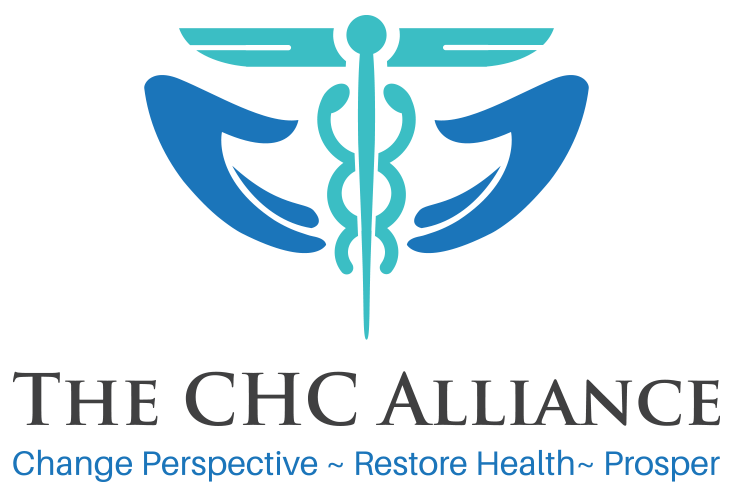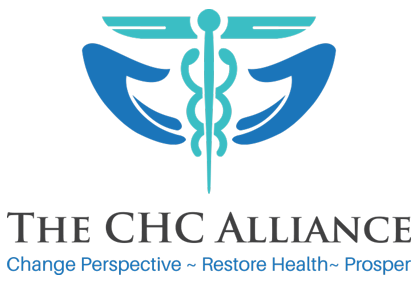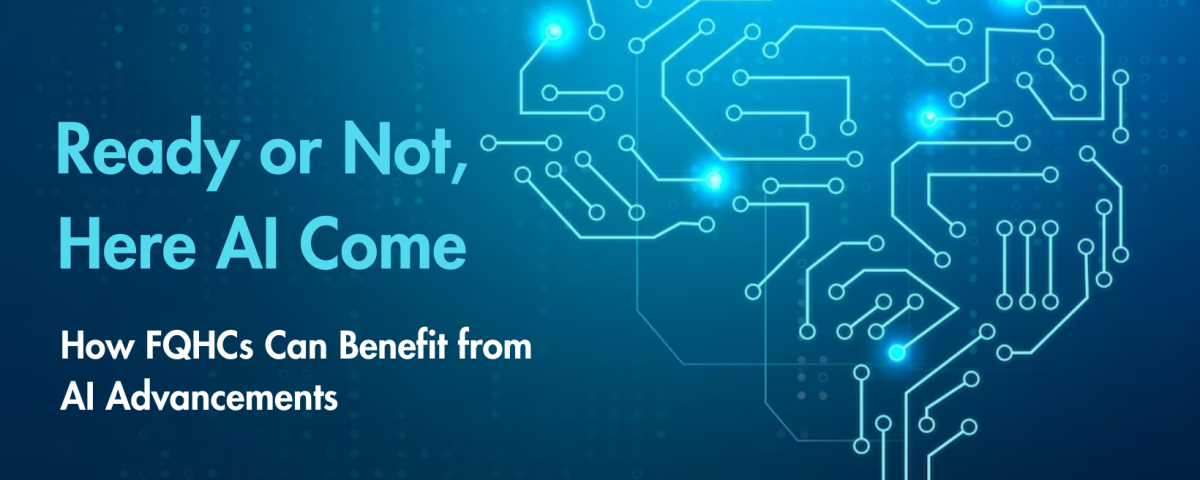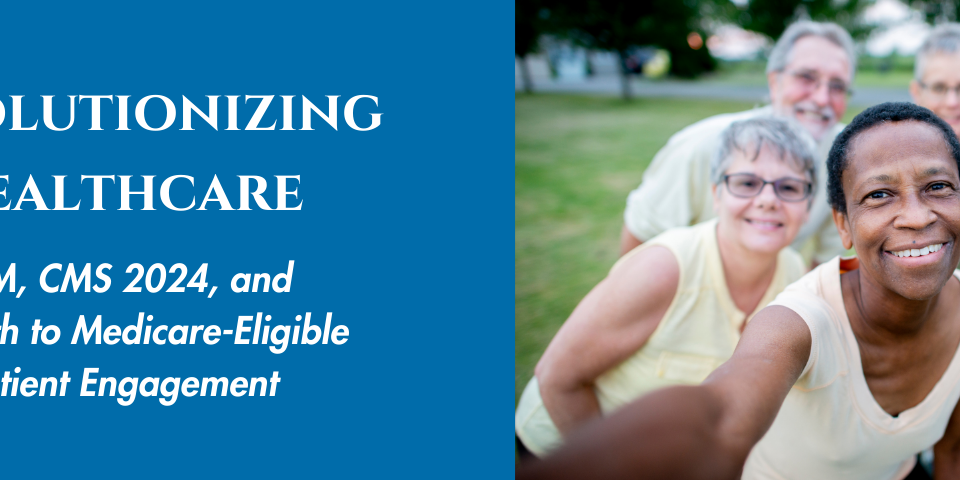- Your Alliance for all your CHC needs.
- (386) 673-9846
- info@thechcalliance.com
Ready or Not, Here A.I. Come: How FQHCs Can Benefit from AI Advancements
June Updates: The CHC Alliance
June 7, 2023
August 2023
September 7, 2023The Power of AI: Revolutionizing Healthcare and FQHCs
You’d have to be living on another planet or in a hole in the ground not to be aware of the burgeoning artificial intelligence (AI) frontier in recent years. Machine learning (software algorithms that learn and improve at specific tasks as they are exposed to more data) has altered the way we live. If you don’t believe it, consider the machine learning in the products we use on a daily basis: Google, Amazon, Netflix, and Uber.
But it’s the recent introduction of ChatGPT and other AI apps that are allowing AI to be used for almost anything by almost anyone. According to Reuters, ChatGPT “is estimated to have reached 100 million monthly active users in January, just two months after launch, making it the fastest-growing consumer application in history.” (In comparison, TikTok took roughly nine months and Instagram took over two and a half years to achieve the same goal.) Artificial intelligence (AI) has arrived in a big way, and its implications and possibilities are already transforming practically every aspect of life, including healthcare.
Healthcare may be slower than other industries to incorporate AI, which is understandable. Healthcare is the industry most directly responsible for life-saving care and treatment. A mistake in healthcare might have fatal consequences.
However, the necessity for increased discretion does not imply that AI has no place in healthcare. On the contrary, healthcare may be the field in which AI genuinely shines, demonstrating to everybody what is truly possible when humans and AI collaborate to solve issues.
According to Ai-med.io, the Food and Drug Administration (FDA) has already cleared more than 500 AI medical algorithms in the United States, including the atrial fibrillation algorithm for the Apple Watch and AliveCor portable device, algorithms for remote patient monitoring and continuous glucose monitoring devices, diagnostic imaging devices, and treatment equipment (such as ventilators, dialysis machines, and orthopedic devices). The FDA is also considering the approval of AI-enabled biomarker tests for several cancers. Medical equipment lacking AI capabilities may lose significance (or possibly become obsolete) in the near future.
In an interview with Forbes business magazine, Harvard fellow Nikhil R. Sahni (of the strategy and management consulting firm McKinsey & Company) stated, “Medical knowledge is growing so rapidly that only six percent of what the average new physician is taught at medical school today will be relevant in ten years.”
It’s no surprise, then, that companies are developing targeted “digital twin” applications in an effort to reduce costs, enhance access to healthcare, and support healthcare providers. The Media and Innovation Lab (TheMIL) at the University of Miami Miller School of Medicine is collaborating with Amazon Web Services (AWS) to address sleep-loss issues utilizing digital twins. Clinical research involving virtual patients is being advanced by companies such as Virtonomy and Unlearn.AI.
Dassualt’s Living Heart Project was the first to develop a virtual model of the human heart, and Neurotwin is poised to do the same with personalized hybrid brain models. All of this AI promises to promote healthcare equity, cut costs, and lead to key advances in disease prevention and cure.
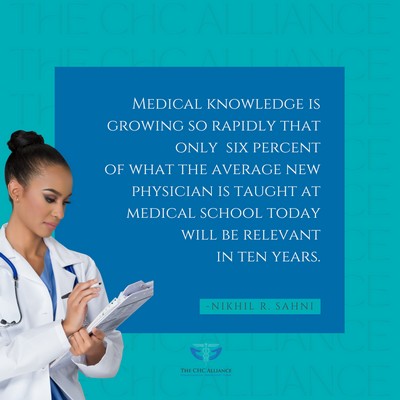
Immediate Impact: Enhancing Patient Engagement and Streamlining Administrative Tasks
However, the algorithms that focus on enhancing patient engagement and minimizing administrative constraints on healthcare professionals are having the greatest immediate impact, particularly for FQHCs. FQHCs must report metrics not just to insurance companies and stakeholders but also to the Health Resources and Services Administration (HRSA), which is the principal funder of government grants for FQHCs.
In a post-pandemic world, stringent reporting requirements for outcome-based care are colliding with increased staffing shortages, creating a prime proving ground for AI capabilities. AI-powered software can detect high-risk patients and offer them targeted notifications, appointment reminders, and educational materials to urge them to seek care. AI solutions can help decrease front-desk congestion and prioritize appointments for patients who require immediate care or have conditions that require close monitoring.
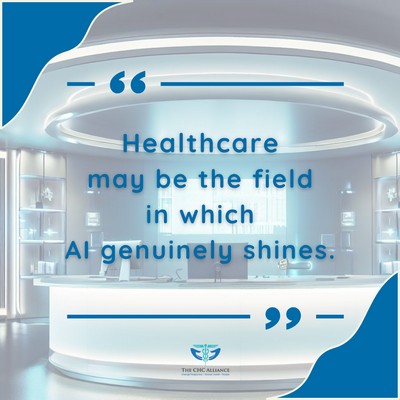
Advancements in EHR Systems: Transforming Patient Care and Provider Efficiency
This year, electronic health record (EHR) software giants eClinicalWorks (eCW) and Epic Systems both publicly introduced AI-based integrations, employing new AI-enabled functionality for everything from patient communication to patient care management and monitoring. Both have embraced artificial intelligence’s capacity to automate administrative tasks affecting every element of a patient’s visit, from appointment scheduling to provider interaction to billing.
eClinicalWorks has created the first conversational EHR, which allows users to ask the EHR questions in natural language to obtain relevant patient information. AI will help eCW’s document management system automate administrative duties, summarize patient and provider interactions in their new EHR copilot, and save valuable provider time by enhancing their dictation service.
Speaking of clinical documentation, Microsoft-owned Nuance Communications, Inc., a pioneer in speech recognition and AI software, recently launched the first fully automated clinical documentation application (Dragon Ambient eXperience Express, or DAX Express), which “…automatically and securely creates draft clinical notes in seconds for immediate clinical review and completion after each patient visit in the exam room or via telehealth patient conversations.”
Partnering for Better Health: The CHC Alliance and Oatmeal Health
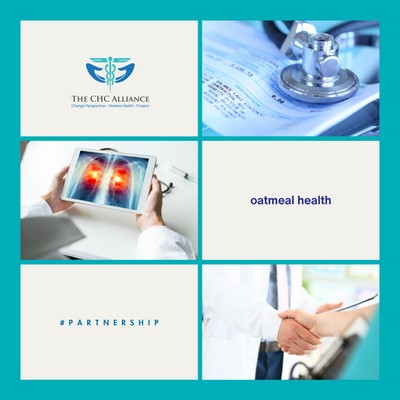
Are you ready to revolutionize your FQHC’s billing and practice management using the transformative power of AI? Look no further than The CHC Alliance. We understand the unique needs of FQHCs and are committed to supporting you every step of the way. Our experienced team can assess your current management software and specific needs, enabling you to design AI builds that optimize productivity and streamline operations.
An added bonus comes in the form of an exceptional partnership. The CHC Alliance has partnered with Oatmeal Health, a technology-driven lung cancer screening and care navigation service. Oatmeal Health provides a unique opportunity for FQHCs to identify, screen, and re-screen under-represented patients at no cost. With no financial burden on your organization or patients, Oatmeal Health provides AI technology and clinical management, ensuring seamless integration into your care team. CMS reimburses FQHCs for Oatmeal’s services via a per-member, per-year fee based on three CPT codes (G0296, 99407, and 0721T).
It should be noted that Oatmeal only receives reimbursement for successful screenings. Guided by co-founders Ty Vachon, M.D., and Jonathan Govette, who have both personally experienced the loss of family members to lung cancer, Oatmeal Health is strongly dedicated to advancing AI-enabled early-detection cancer screenings and case management. Their deep commitment to serving populations disproportionately affected by the disease guarantees that your FQHC will benefit from cutting-edge solutions that truly make a meaningful impact.
By joining forces with The CHC Alliance and Oatmeal Health, you can make a significant impact on your organization and patients’ lives. Contact us today to learn more about how we can help you harness the power of AI for the betterment of your practice and community.
